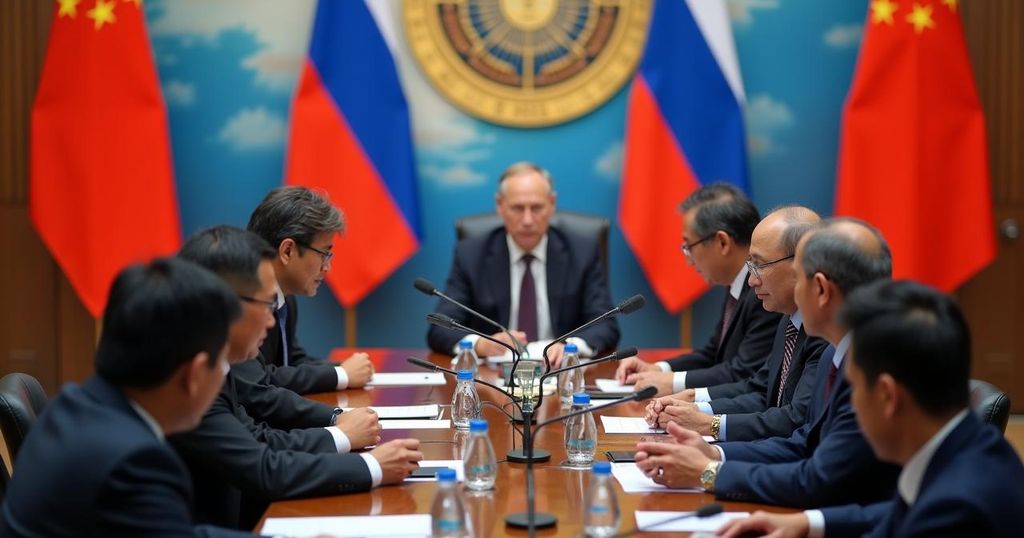Lawmaker Criticizes Russia for Infringing on ASEAN’s South China Sea Initiative
Cagayan de Oro Representative Rufus Rodriguez condemned Russia for obstructing an ASEAN statement aimed at addressing the South China Sea disputes. He asserted that Russia should refrain from meddling in the region’s affairs, indicating that its actions were influenced by a self-serving alliance with China amidst geopolitical tensions involving the Philippines and escalating Chinese aggression. The U.S. confirmed the blockage of the statement by Russia and China, further complicating regional diplomatic efforts.
In a recent statement, Cagayan de Oro 2nd District Representative Rufus Rodriguez criticized Russia for obstructing a draft statement from the Association of Southeast Asian Nations (ASEAN) concerning the South China Sea. The representative expressed that external powers, like Russia, should not interfere in regional matters. Rodriguez noted that both Russia and China had hindered the issuance of a stronger ASEA declaration which aimed to address the situation in the South China Sea, particularly concerning the stipulations of the United Nations Convention on the Law of the Sea (UNCLOS). He attributed Russia’s interference to its self-serving alliance with China, particularly in light of Beijing’s ongoing support of Russia’s military actions in Ukraine. A U.S. official confirmed that Russia and China effectively dismissed a consensus statement proposed by ASEAN member states, which had garnered the support of the United States, Japan, Australia, South Korea, and India. The tensions in the South China Sea have been exacerbated in recent months, especially for the Philippines, where incidents of Chinese aggression have been reported, prompting national officials, including President Ferdinand “Bongbong” Marcos Jr., to voice their concerns against China’s actions. President Marcos has articulated the need to address both economic cooperation and political security surrounding these maritime disputes, indicating a growing regional anxiety over China’s influence in the area.
The South China Sea is a contested region that has witnessed increasing tensions, particularly between China and ASEAN member states, including the Philippines. The area is rich in natural resources and holds significant strategic importance. ASEAN, a regional intergovernmental organization comprising ten Southeast Asian nations, has been attempting to establish a unified stance on maritime conduct in this crucial area, particularly through legal frameworks defined by international laws such as UNCLOS. Recent interventions by major powers, such as Russia and China, have raised alarms among ASEAN nations and their allies, culminating in statements of concern regarding the infringement of sovereignty and regional security. These disputes are further complicated by global political dynamics, including military alliances and geopolitical interests.
In summary, Representative Rufus Rodriguez has emphatically criticized Russia for obstructing ASEAN’s efforts to issue a collective statement on the South China Sea, signaling a growing frustration towards external interference in regional issues. The tension in the South China Sea, emanating from China’s claims and aggressive actions, continues to compel ASEAN nations to seek a cohesive response while managing their relationships with global powers. The intricate interplay of regional and international politics underscores the fragile security landscape of the area, necessitating proactive diplomatic engagements.
Original Source: www.inquirer.net




Post Comment